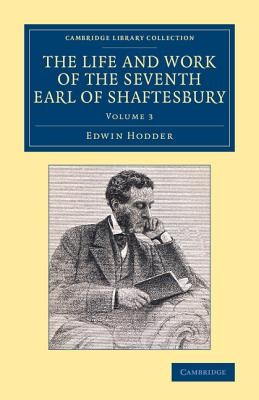
- We will send in 10–14 business days.
- Author: Edwin Hodder
- Publisher: Cambridge University Press
- ISBN-10: 110807555X
- ISBN-13: 9781108075558
- Format: 14 x 21.6 x 3.2 cm, minkšti viršeliai
- Language: English
- SAVE -10% with code: EXTRA
The Life and Work of the Seventh Earl of Shaftesbury, K.G. (e-book) (used book) | bookbook.eu
Reviews
Description
In the preface to this three-volume work of 1886, Edwin Hodder (1837-1904) writes that the seventh earl of Shaftesbury 'resisted every appeal that was made to him to allow his biography to be written'. In the end, he succumbed to the inevitable, and shared with Hodder, a professional author, both his archives and his memories. Anthony Ashley-Cooper (1801-85) was an evangelical Christian with a profound sense of the duty owed by the aristocracy to their country and to the less fortunate. He first came to prominence as the leader of the parliamentary campaign for shorter working hours, which led to the Factory Act of 1833. Entering the House of Lords on his father's death, he extended his activities, becoming the best-known philanthropist of his age. Volume 3 begins by considering Shaftesbury's religious views, and continues to describe his energetic and practical charitable activities until his death.
EXTRA 10 % discount with code: EXTRA
The promotion ends in 21d.17:41:51
The discount code is valid when purchasing from 10 €. Discounts do not stack.
- Author: Edwin Hodder
- Publisher: Cambridge University Press
- ISBN-10: 110807555X
- ISBN-13: 9781108075558
- Format: 14 x 21.6 x 3.2 cm, minkšti viršeliai
- Language: English English
In the preface to this three-volume work of 1886, Edwin Hodder (1837-1904) writes that the seventh earl of Shaftesbury 'resisted every appeal that was made to him to allow his biography to be written'. In the end, he succumbed to the inevitable, and shared with Hodder, a professional author, both his archives and his memories. Anthony Ashley-Cooper (1801-85) was an evangelical Christian with a profound sense of the duty owed by the aristocracy to their country and to the less fortunate. He first came to prominence as the leader of the parliamentary campaign for shorter working hours, which led to the Factory Act of 1833. Entering the House of Lords on his father's death, he extended his activities, becoming the best-known philanthropist of his age. Volume 3 begins by considering Shaftesbury's religious views, and continues to describe his energetic and practical charitable activities until his death.


Reviews